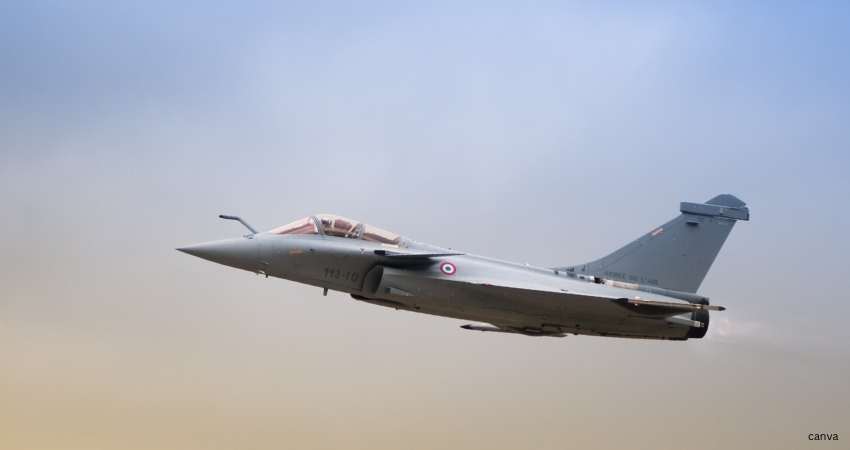
India’s ambition in the defense sector is to become entirely indigenous. Technological autonomy in powerful weapons like fighter jets is essential. But recently, France has refused to share the Rafale fighter jets’ source codes with India. This decision is a significant blow to India, and its reasons and consequences can impact the nation’s overall security. The time has come to ensure indigenous technology and strategic independence—only then can the country remain secure.
History of the France-India Defense Agreement and Current Status: Brief History of the Rafale Deal
France’s company Dassault signed a Rafale deal with India worth more than ₹60,000 crore. India purchased 36 fighter jets, many of which included technological cooperation. The main aim of this deal was to enhance the strength of the Indian Air Force and gain operational independence. However, it also raised expectations of technology transfer. India’s goal was to make Rafale fully indigenous and fulfill its needs independently.
Recent Developments: Decision to Withhold Source Code
Suddenly, France denied India access to the Rafale fighter jets source codes. Understanding the reason is essential. France claims that this technology is like a treasure it doesn’t wish to share. This will affect the Indian military’s operational efficiency. Without the Rafale fighter jets source codes, India cannot make necessary changes to its fighter jets. This decision is a major threat to India’s security because these codes help operate missiles and electronic systems effectively.
Importance of Source Code and Technical Details What is a Source Code and Why is it Important
The source code determines how a fighter jet functions. Think of it as the brain of the jet. It includes electronic systems, missile operations, and electronic warfare capabilities. Without the Rafale fighter jets source codes, India cannot enhance the strength of its jets.
Why Source Code is Crucial for India’s Security
If India gets access to the Rafale fighter jets source codes, we can indigenously develop our missiles and weapons. Just like we developed the BrahMos missile, this too can be linked to self-reliance. It will not only reduce costs but also enhance our technological strength. It will provide complete control over our defense system and allow us to modify technologies as per our needs without external payments.
France’s Intentions and Challenges in India-France Relations Weapons Export and Market Restrictions
European missiles like MBDA’s MICA are popular in India. These companies see great profit in selling their weapons. France’s company also provides missiles like Astra, fitted in many Indian fighter jets. However, not sharing the Rafale fighter jets source codes means India remains dependent on these missiles. This dependence will economically and strategically harm the Indian military.
France’s Concerns and Security Risks
France argues that theft or misuse of its Rafale fighter jets source codes could weaken their own missiles. They fear India or another country could enhance weapon capability using it. On the other hand, India already has good experience with missiles and smart electronics. But trust is vital so that security risks are reduced and independent use of technology becomes possible.
India’s Strategic Position and the Road Ahead: Development of the Indigenous Defense Industry
India must rapidly grow its defense technology. The government has introduced several new policies, emphasizing R&D and public-private partnerships. This will boost confidence in building our own weapons. The Ministry of Defence must enforce strict rules in technical partnerships. This will ensure the growth of indigenous technology and self-reliance.
Essential Steps and Alternatives
- New Model of Technological Cooperation: India should now establish a clear and conditional system for technology transfer.
- International Dialogue: India must pursue diplomatic efforts to protect its strategic interests.
- Multinational Collaboration: India needs strong alliances to use its weapons independently.
Conclusion
Today’s era shows that both economic and technological independence are necessary. In weapons like fighter jets, indigenous technology is the foundation of national security. We must strengthen our defense system. Without the Rafale fighter jets source codes, India’s dream of self-reliance will remain incomplete. The government and industry must work together so that in the future, India can build its own weapons and secure its defense independently.
Now is the right time to strengthen our security perspective. Our true strength is prioritizing proper strategy and indigenous technology in the national interest.




